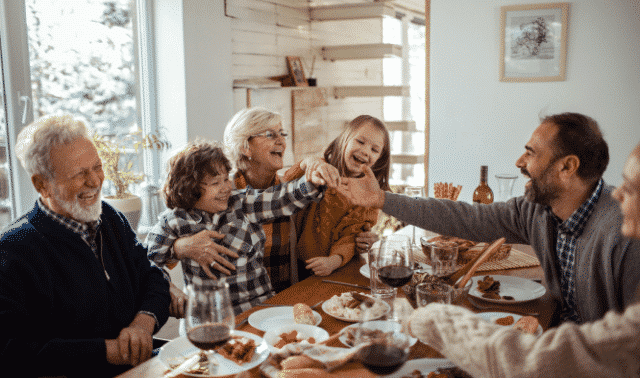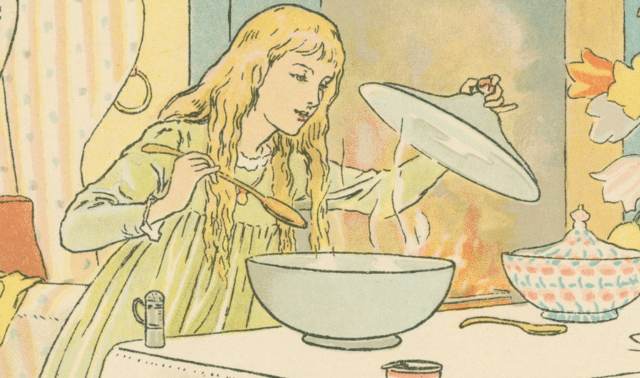
Holiday gatherings often serve up an abundance of delectable desserts, but do you sometimes wish your family conversations were a little less stale? You wish Uncle Merle would dish out stories about Grandpa instead of his latest adventures with Medicare Part D. You hope your cousins’ chatter will someday get around to childhood memories.
Don’t despair: With a bit of preparation and some creative flair, you can transform tepid table talk into appetizing ancestral anecdotes and scrumptious personal stories. Here, we offer techniques for infusing dull discussions with flavorful family history, followed by recipes for 10 great conversation starters to serve at your next holiday gathering.
1. Lead with an interesting question anyone would want to answer.
Conversation starters are like appetizers: they whet the palate for what’s to follow. Example: “What’s your favorite dish on the table?” Then follow up with more specific questions. “Why do you like it so much?” “Whose recipe is it?” This is the conversational main dish, so to speak: the meaning behind the memories associated with a family recipe.
2. Decide which questions you want to ask individually, and ones you want to ask the whole group.
Family stories make lively dinner conversation, but it isn’t easy to take notes while holding a fork. Also, in a large group, responses may not be as personal, and conversation is easily derailed. Do you want every sibling’s memories of Hanukkahs past, or would you rather focus on your sister’s tender recollection of the very last time Dad lit the menorah? Consider chatting with just one or two relatives over pie, too.
3. Soften your Q&A session with some creative presentation.
Pass around a bowl of homemade fortune cookies with heritage questions inside, or send around a hat with those questions on slips of paper. Ask everyone to summarize his or her year on video for the cousin stationed in Afghanistan. Record a Skype conversation with long-distance grandchildren, asking simple, fun questions about favorite gifts and holiday-break activities.
4. Try not to ask leading or “yes” or “no” questions.
Occasionally you’ll have to draw information out of people, though. If your question about favorite gifts doesn’t bring up Uncle Bill’s BB gun, you might try to stir up memories: “I’ve heard that Uncle Bill got a BB gun from grandpa one year….” If you’re tracking a specific rumor, however, you may need to spoon-feed your audience: “Did Grandma really shoot Grandpa in the foot with Bill’s BB gun?”
5. Listen respectfully to different viewpoints.
Some take their turkey white and dry, others dark and drenched with gravy. Your brother joyfully recalls holiday singalongs, but your sister hated them. Older cousins knew a fun-loving grandma; younger ones, a grieving widow. You can always cut in gracefully if the second glass of wine makes tongues a little freer than you’d hoped.
6. Be sensitive about touchy subjects.
Some family stories are hard pills to swallow: they can be embarrassing, divisive or painful. Steer the conversation to positive (or at least meaningful and poignant) memories if you need to—the holidays shouldn’t feel like group therapy. Save questions about dad’s third failed marriage for another setting.
Read: To Write or Not to Write: Respecting Privacy in Family-History Storytelling
7. End your inquiry with a fun or positive topic.
Ask about the best gift they ever got or gave, or their funniest memory of your penny-pinching grandpa, bless his long-gone soul. If you’ve recorded the conversation, promise to share it (and keep your promise). There’s nothing like listening to other people’s stories to make someone more anxious to share her own the next time around.
A version of this article originally appeared in the January 2012 issue of Family Tree Magazine.




